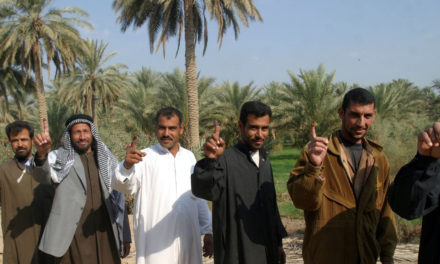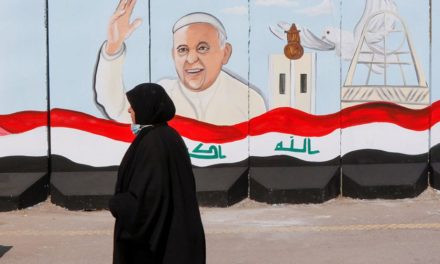(Council of Representatives. Reuters)
15 years have passed since the establishment of a democratic political system in Iraq, which has seen multiple governments made up of coalitions. It seems like the next government will be no different that will inherent the same characteristics of the system. While there are many drawbacks to the effectiveness of coalition governments, it does resolve the key challenge for wide participation of various political parties in cabinet. More so since we still have deeply fractured political tensions, which has adversely affected social and political cohesion.
The results of the May 12 parliamentary elections coupled with the political and societal atmosphere within Iraq and the region will determine the nature and characteristics of the next Iraqi government. These characteristics will be formed from a number of factors, such as the proposed government program; the composition of parties in the cabinet and their caliber; and their ability to address current and forthcoming challenges.
In order to reach the vision which our 2005 Constitution aspired us to reach, we need to identify the structural and political challenges facing the forthcoming government and thereafter articulate the shape and key characteristic of the next government, which does put it in a position to address these ongoing and forthcoming challenges.
The problem
To overcome the dilemma of the lack of the effectiveness of coalition governments, Iraqi state institutions need to define the general strategic programs and strategies of their domestic and external policies to allow forthcoming coalition governments to focus on the mechanisms of implementation of their agreed government programs. This can only take place if we build effective institutions; establish the rule of law; and build cadres capable of managing the state. The second problem lies in the absence of an objective assessment of the performance of previous and current governments coupled with weak culture of building on the achievements made from previous governments. Rectifying these shortfalls will lead to the establishment of general strategic framework for the Iraqi state and strengthens the institutions of the state and its much needed rule of law.
The political transformations witnessed in the region have overshadowed the political scene in Iraq and has made it more complicated. The government and its institutions have a great responsibility to preserve national unity and protect it from polarization and external influences. It is responsible and accountable for the promotion of the principle of citizenship and the protection of the religious, ethnic and demographic diversity of the country. On the other hand people are determined that the state takes charge with significantly reducing the external influences and exploitation of current political and social cohesion, which directly impacts the weakening of the Iraqi body and its nascent democracy. Not forgetting the chronic challenge of corruption, which is within the hidden state of the establishment.
This complexity has led to a threat to nationalism and the social fabric of Iraq in which despair and panic can be seen among the youth who did not actively participate in this election, which in turn meant their failure to contribute to drawing of a road map for their future and hence enhancing their role in building the nation. Low election participation, coupled with significant election fraud (in certain provinces and to varying degrees) and withdrawn role of Najaf’s Hawza only adds to the complexity; credibility and political legitimacy of the next government.
The required caliber of statesmen
In the midst of these multiple and significant challenges to state and society, Iraq needs a special caliber of statesmen to take it to the shore of safety. Certainly, not all of the required qualities and leadership attributes can be found in one person, albeit with considerable experience and ability, but it is very possible to identify the qualities and capabilities on which to choose the team of suitable politicians for important positions to meet the needs of the country.
One of the problems of Iraqis is their tendency to personalizes politics. Here it is important to distinguish within the pool of advanced cadres of the country between their role as executives responsible for the implementation of laws, regulations and policies on one hand, and the different type of leaders who are responsible for the articulation of government programs and the development and the search for new visions and perspectives in which current needs and future challenges are comprehended and addressed as part of government day to day management. For example, creativity and effectiveness are necessary for leadership. Efficiency is essential for mangers, so let us be clear as to who will manage and who will lead since they are two different calibers. Although the Iraqi state (and not society) is short of both, only leaders can define a path for the development of the country, managers will be too consumed with the depth and with its baggage.
Although the positions of ministers are political, their success depends on the efficient machine of the state to support him or her. In the Iraqi case, a minister should not be purely political, nor only technocrat. It is necessary here not to lose sight of the fact that politics is an art of management and that our political system is a pluralistic parliamentary consensus. Therefore, it is necessary to choose a technocrat with knowledge, wisdom and political virtue. It must be remembered here that the quota “Mohasasa” practices have given the non-technocrats many senior positions within the state apparatus, which in normal circumstances were supposed to be given to apolitical competent officials and administrators. We must recognize the need for Iraqi institutions to improve its professional caliber at all levels, which in itself will result in the development of state’s institutions to become a backbone to achieve good governance.
We need to choose people of a special kind, people who have the ability to make decisions, and carry the heavy inherited legacy of the state. Fortunately for Iraq, it is full of competencies and expertise (at home and abroad) who are able to take the country to safety on the basis of “putting the right person, in the right place”, in order to change the trend of citizens’ lack of involvement by in the political system by abstaining from the elections.

Lukman Faily
Lukman Faily served as Iraqi ambassador to Japan and the United States.










